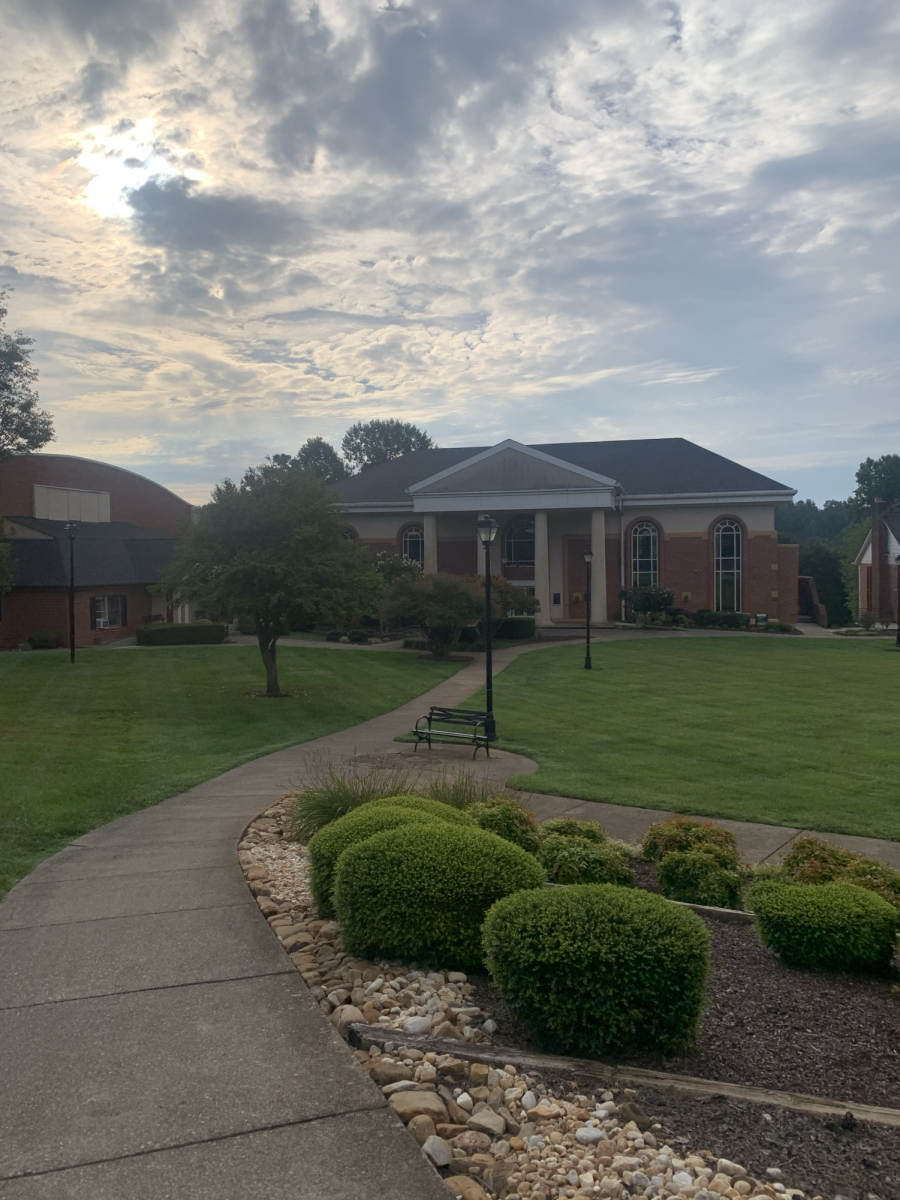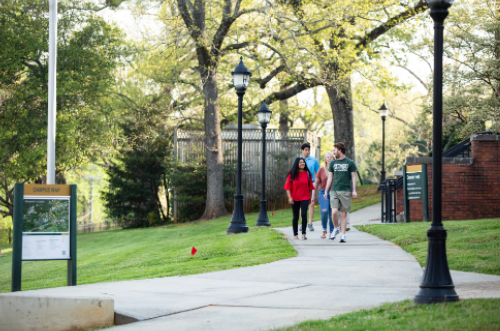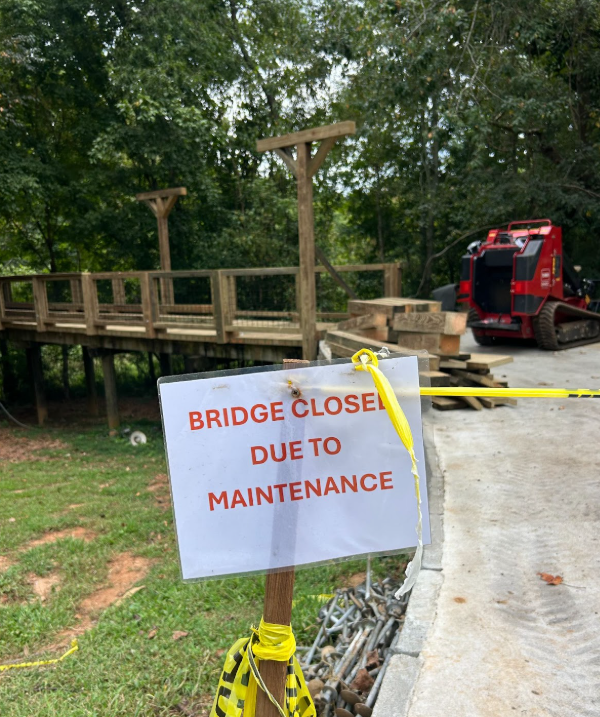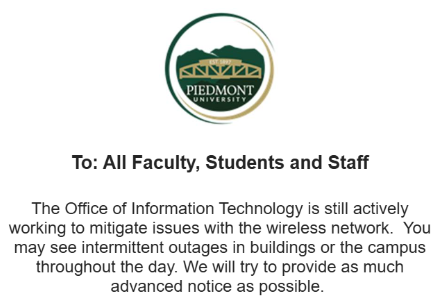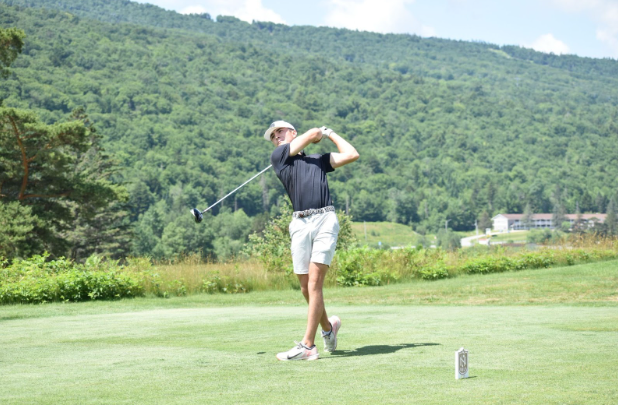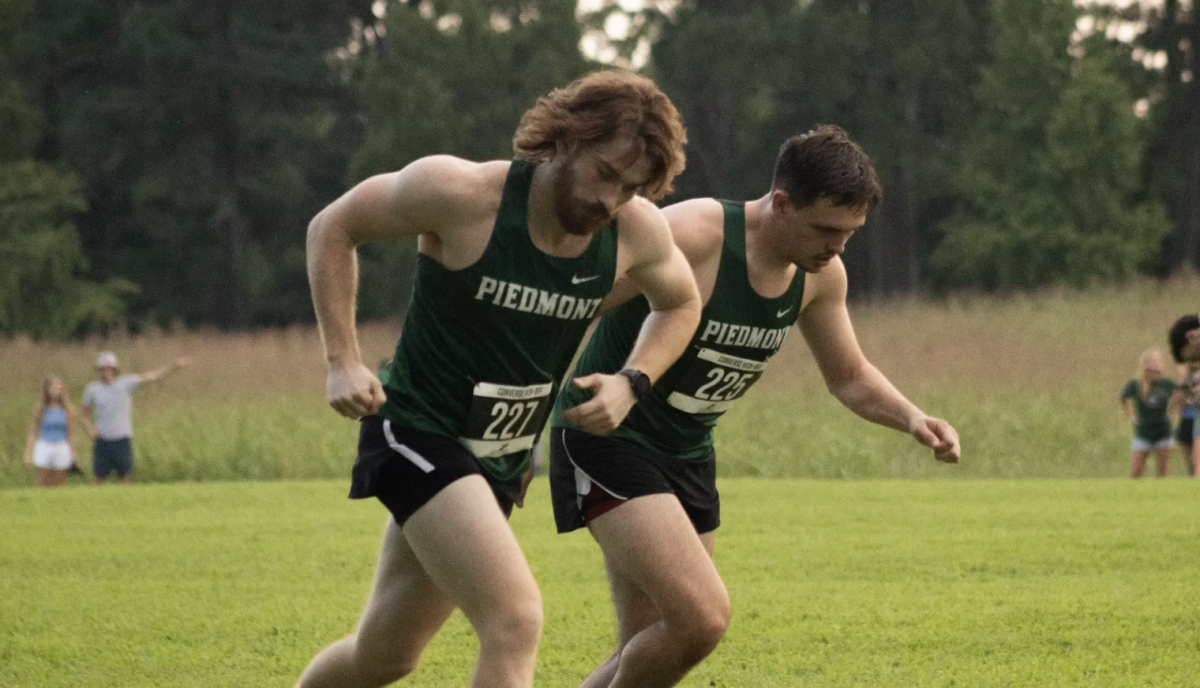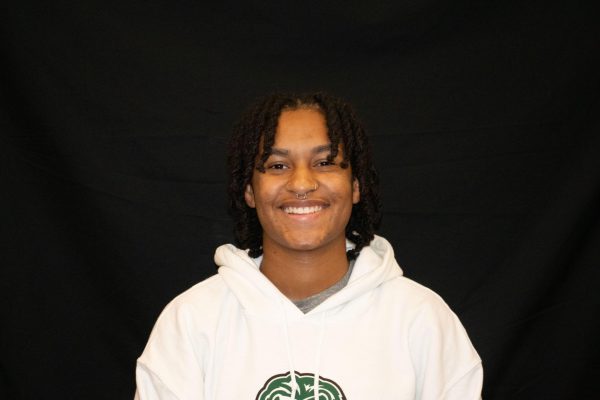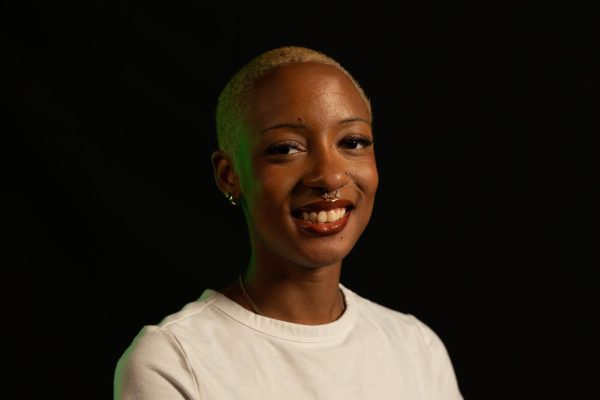Small universities are disproportionately seeing financial problems throughout the United States. Many students at these universities are noticing drastic budget cuts, with some universities falling altogether. The most notable victims to these struggles are Birmingham Southern College and Cabrini University, both of which closed down last year.
Piedmont University is yet another small university facing financial challenges, and students, parents and faculty are taking notice. Many Piedmont students have expressed concerns about their academic programs, athletic experience, extracurricular activities and tuition costs.
The Roar sat down with Piedmont University President Marshall Criser in late Nov. to address the concerns of students regarding the financial status of the university and the changes being made in each department.
The process of the budget cuts and reviewing the university’s financial situation began in the 2020-2021 school year, with expenses beginning to drastically rise over income. These increases came to a head in 2023, when the university went into a $9 million deficit, according to ProPublica.
Additionally, Piedmont saw a 15% decrease in anticipated enrollment in their undergraduate and graduate programs going into the 2024-2025 school year. 6% more than the national average of a 9% decrease. FAFSA changed their application process and Criser cited this as a deterrent for students to apply.
Piedmont has a large percentage of first generation college students, most of whom rely on specific grants determined by FAFSA to be able to attend each year. When FAFSA changed the application process, students who rely on federal grants were forced to wait to enroll.
“We were faced with the need to either grow revenue or cut expenses,” President Criser said. “Given sort of where we ended up this [fall of 2024], we understood that we’re going to have to make some additional budget cuts.”
In the five years since the university began reviewing the budget deeper, there have been over $6 million cut to reduce expenses. The university has been looking at various ways to increase revenue, notably by increasing enrollment.
Tuition costs have increased in each of the last five years, but Criser doesn’t see this as a sustainable solution.
“You can’t solve your problems by just raising tuition. You really solve your problems by increasing enrollment,” he said. “While graduate [enrollment] has grown, I’d say the revenue you get from a graduate student is the tuition they pay. The revenue you get from an undergraduate student, typically at Piedmont, is going to be tuition and fees. It’s also going to be room and board. So there are more services provided to undergraduate students. I realize, to me what is revenue, to a student is cost. The balance is making sure that students believe they’re getting a good value for what they’re paying.”
On Feb. 4, 2025, Criser announced positive data regarding retention and enrollment rates to the faculty and staff, thanking them for their hard work to recruit and support students throughout each semester.
“We retained 92% of our undergraduate students from last fall,” Criser wrote in an email sent to the faculty and staff. “Combined with increased enrollment of undergraduate and graduate students this spring, Piedmont University has responded to the challenges we faced from the delays in FAFSA filings last year.”
Despite the positive news, Piedmont has still faced continued loss since the start of the new semester. Part-time professors have been told that the university cannot bring them back on staff in the fall. Athletic trainers and strength coaches have left, with no announcement of any search for a replacement from the university.
A heavy concern amongst the student body is what will happen to athletics, with over 70% of the residential population being athletes. Rumors have circulated among student-athletes about how their experience in their sport will be impacted.
In an interview with The Roar back in Nov., Criser said he has worked extensively with Athletic Director Jim Peeples and Assistant Athletic Director Jamie Purdy to understand the experiences of athletes and what is necessary for the Lions to remain competitive, while also addressing the needs of the university as a whole.
Specific aspects of athletics noted were travel, recruiting and the overall size of rosters and staff. There have also been conversations of implementing a federal student worker plan.
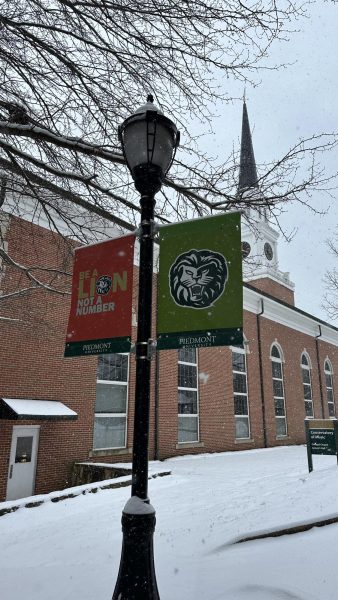
“One obvious issue would be the amount of travel that players are expected to do and working through issues like that,” Criser said. “We have also tried to benchmark ourselves against other universities, and understand the structure that different teams have in terms of head coaches and assistant coaches. We’re making sure, hopefully, that we are still competitive within our conference, but at the same time trying to size that right.”
Athletes have been vocal with their frustrations and concerns and have created various petitions against changes to travel rosters, roster sizes and staff changes. Criser acknowledges the concerns of students.
“Our goal is to continue to maintain a very competitive athletics program and understand that every one of our teams, and the students who comprise that team, are very, very important to student life, student activity and student interest at Piedmont,” Criser said. “I believe we have a plan going forward that will maintain the quality of our athletics program. It is important to this university that we do that. I know that anytime you change something, there are going to be people who don’t like it. I’m hopeful that as we go forward, people will realize it’s not as dire or significant as they may be afraid of it being. I’m working very closely with the athletics department right now to make sure that student athletes understand our plans for going forward, and they have been very responsive to helping the rest of the university.”
Academic programs and extracurricular activities have all students concerned about their majors and their success in these programs. Students have already experienced the cancellation of student travel, a cut in student worker hours and a lack of necessary equipment for their major. There have been questions asked if programs will be cut and if professors will be retained.
Criser did not specify if there are plans to reduce or eliminate programs, but did note that there are conversations held each school year on what should be retained or not. There will be further discussions in the coming school year about the viability of various programs.
“There is a plan to look at that very seriously for next year, to understand exactly what the balance is between well-enrolled classes and specialty programs, but also recognizing students who are actually in a program,” said Criser. “We have a responsibility to continue to work with them, so that they can achieve their degree. It’s just an intention to make sure that we’re very, very thoughtful about how we do it.”
Another concern students have expressed are cuts that have impacted student services and resources, such as counseling, career services, tutoring and technology. Criser said it’s important for him to maintain a quality level of service to students, but said there are discussions about ways to decrease expenses wherever possible.
“We’ve created shared expectations from the faculty and the staff on this campus to make us successful,” Criser said. “I acknowledge that the unknown is probably more troubling than the reality of what we’re going through, but that’s why we have to communicate. We have to be transparent.”
Although there have been mass changes to Piedmont over the past few years — from athletic teams losing coaches to academic programs losing esteemed professors — Criser said the university intends to carefully address each aspect of the budget and recognizes the importance students play in shaping the institution.
“I believe firmly that students are the reason we’re here, and we respect that, and we have continued to reflect that as we’ve looked at the budget.”


